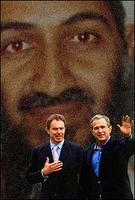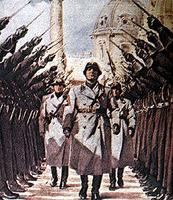|
This is my dynamic, frequently updated homepage. This is a NewsLog, also known as a WebLog or Blog.
Everything is evolving, so don't assume too much.
People to watch:
Adina Levin
Andrius Kulikauskas
Britt Blaser
Catherine Austin Fitts
Chris Corrigan
Clay Shirky
Dan Gillmor
Dave Pollard
David Allen
David Weinberger
Dewayne Mikkelson
Dina Mehta
Doc Searls
Elisabet Sahtouris
Elizabeth Lawley
Euan Semple
Florian Brody
Frank Patrick
Gen Kenai
George Dafermos
George Por
Graham Hancock
Greg Elin
Hazel Henderson
Heiner Benking
Inspector Lohman
Jean Houston
Jerry Michalski
Jim McGee
Jim Moore
John Abbe
John Perry Barlow
John Robb
Joi Ito
Jon Husband
Jon Lebkowsky
Jon Udell
Jonathan Peterson
Judith Meskill
Julian Elvé
Julie Solheim
Kevin Marks
Lawrence Lessig
Leif Smith
Letecia Layson
Lilia Efimova
Lisa Rein
Marc Canter
Mark Oeltjenbruns
Mark Pilgrim
Mark Woods
Martin Dugage
Martin Roell
Mary Forest
Matt Mower
Max Sandor
Michael Fagan
Mike Owens
Mikel Maron
Mitch Kapor
Mitch Ratcliffe
Nathalie dArbeloff
Netron
Noam Chomsky
Paul Hughes
Peter Kaminski
Phil Wolff
Philippe Beaudoin
Ray Ozzie
Raymond Powers
Rebecca Blood
Roger Eaton
Roland Tanglao
Ross Mayfield
Scott Lemon
Sebastian Fiedler
Sebastien Paquet
Skip Lancaster
Spike Hall
Steven Johnson
Stuart Henshall
Thomas Burg
Thomas Madsen-Mygdal
Thomas Nicholls
Timothy Wilken
Todd Suomela
Tom Atlee
Tom Munnecke
Tom Tomorrow
Ton Zijlstra
Lionel Bruel
Loic Le Meur
Nancy White
Mark Frazier
Merlin Silk
Robert Paterson
Colby Stuart
Nova Spivack
Dan Brickley
Ariane Kiss
Vanessa Miemis
Bernd Nurnberger
Sites to watch:
Electronic Frontier Foundation
Co-intelligence Institute
Free Expression Network
Collective Intelligence
Action without borders
Manufacturing Dissent
Explorers Foundation
Disclosure Project
ThoughtsOnThinking
Forbidden Science
Emergent by Design
Greater Democracy
Global Ideas Bank
Independent Media
Space Collective
Friendly Favors
Escape Velocity
Disinformation
Collective Web
WorldChanging
YES Magazine
Disinfopedia
NotThisBody
MetaFilter
Webcamorama
BoingBoing
Smart Mobs
Do No Harm
Imaginify
FutureHi
Openworld
Nanodot
HeadMap
Rhizome
Absara
Edge
Junto
French:
Emmanuelle
Manur
Elanceur
Loeil de Mouche
IokanaaN
Blog d'Or
Le Petit Calepin
GeeBlog
Absara
Guillaume Beuvelot
Ming Chau
Serge Levan
Jean Michel Billaut
C'est pas Mécanique

I live in Toulouse, France where the time now is:
01:11
Unique Readers:

Primarily
Public Domain
Everything I've written here is dedicated to the
Public Domain.

The quotes from other people's writings, and the pictures used might or might not be copyrighted, but are considered fair use. Thus, overall, this weblog could best be described as being:
Primarily Public Domain. |
Syndication:
 ![Validate my RSS feed [Valid RSS]](http://www.newciv.org/pic/valid-rss.png)
|
| Saturday, November 27, 2004 |  |
|
|
|
 I just finished watching the third part of a BBC series called The Power of Nightmares: Baby It's Cold Outside, broadcast in the past three weeks. It was made by Adam Curtis. I'm sure it must have been difficult to get such a controversial thing on the air. The series makes a compelling case for concluding that the world has been seriously misled by fanatics who have painted a nightmare picture that has nothing to do with reality. And that they have done so merely to serve their own political and religious ends. I just finished watching the third part of a BBC series called The Power of Nightmares: Baby It's Cold Outside, broadcast in the past three weeks. It was made by Adam Curtis. I'm sure it must have been difficult to get such a controversial thing on the air. The series makes a compelling case for concluding that the world has been seriously misled by fanatics who have painted a nightmare picture that has nothing to do with reality. And that they have done so merely to serve their own political and religious ends.
We track two movements: the U.S. Neo Conservatives and certain militant radical muslim factions. The videos do a good job at laying out their histories and philosophies and key players.
Ironically, their aims are very similar. They are groups that were horrified by the path that free societies seemed to take. What they deemed to be the moral corruption that they observed around them. Which they blamed on a society where anything goes and there were no uniform moral values. The moral decay of a liberal society. They first thought the fault was with the leaders of their societies. But they found that even when their own kind managed to seize power, it didn't change things. So they blamed the people in their regions. It was simply that everybody were too dumb and corrupted to see the truth of how they were supposed to behave. Too much freedom, and too little to guide them. So they came up with the solution. Invent a battle between good and evil. Find an enemy and paint the most nightmarish possible visions of their sinister motives and the extent of their power. Mobilize your people against the enemy, driven by the fear of what they can do to you.
But in the late 90s it wasn't really working for any of those groups. They had essentialy failed and had little public support anywhere. Until 2001 where both groups got an enormously lucky break. Somebody brought down the WTC. One group suddenly has the evil sinister enemy they had been seeking, and the other suddenly has the attention of millions of people, where before they didn't.The Power of Nightmares began as an investigation of something else, the rise of modern American conservatism. Curtis was interested in Leo Strauss, a political philosopher at the university of Chicago in the 50s who rejected the liberalism of postwar America as amoral and who thought that the country could be rescued by a revived belief in America's unique role to battle evil in the world. Strauss's certainty and his emphasis on the use of grand myths as a higher form of political propaganda created a group of influential disciples such as Paul Wolfowitz, now the US deputy defence secretary. They came to prominence by talking up the Russian threat during the cold war and have applied a similar strategy in the war on terror.
As Curtis traced the rise of the "Straussians", he came to a conclusion that would form the basis for The Power of Nightmares. Straussian conservatism had a previously unsuspected amount in common with Islamism: from origins in the 50s, to a formative belief that liberalism was the enemy, to an actual period of Islamist-Straussian collaboration against the Soviet Union during the war in Afghanistan in the 80s (both movements have proved adept at finding new foes to keep them going). Although the Islamists and the Straussians have fallen out since then, as the attacks on America in 2001 graphically demonstrated, they are in another way, Curtis concludes, collaborating still: in sustaining the "fantasy" of the war on terror.
Which the film also provides quite some support for. There wasn't much of an Al-Qaida before 9/11. Bin-Ladin had to actually rent camouflage-clad gunmen for some of his videos, and tell them to bring their own guns. Because he didn't have much of a group. And there wasn't really much of an Al-Qaida after. A lot of middle-eastern looking folks have been detained for often very silly reasons. Accused of being sleeper cells because they took tourist videos in Disneyland. No fancy bunkers were found in Tora-Bora. Very few people have been charged with anything at all. Not that there aren't fanatical militant groups who'd love to attack the United States. And some of them might succeed. But the fantasy is the existence, extent and organization of one unified evil network.
You can see the series here:Or, get a more high quality bit torrent version from sites like this.
[ Politics | 2004-11-27 23:59 | | PermaLink ] More >
|
|
| Wednesday, November 24, 2004 |  |
|
|
|
 "A human being is a part of the whole, called by us "Universe," a part limited in time and space. He experiences himself, his thoughts and feelings as something separated from the rest - a kind of optical delusion of his consciousness. This delusion is a kind of prison for us, restricting us to our personal desires and to affection for a few persons nearest to us. Our task must be to free ourselves from this prison by widening our circle of compassion to embrace all living creatures and the whole of nature in its beauty. Nobody is able to achieve this completely, but the striving for such achievement is in itself a part of the liberation and a foundation for inner security."
-- Albert Einstein
[ Inspiration | 2004-11-24 18:26 | | PermaLink ] More >
|
|
| Tuesday, November 23, 2004 |  |
|
|
|
 Posted on William Gibson's blog, this is from an interview with Alvin Toffler, in "Modulations: A History of Electronic Music": Posted on William Gibson's blog, this is from an interview with Alvin Toffler, in "Modulations: A History of Electronic Music":"Today, the technologies of deception are developing more rapidly than the technologies of verification. Which means we can use a television camera, plus special effects, plus computers, etc. to falsify reality so perfectly that nobody can tell the difference. And the consequences of that eventually could be a society in which nobody believes, everybody knows that seeing is not believing, and nobody believes anything. With the exception of a small minority that decides to believe one thing fanatically. And that's a dangerous social/cultural situation.
One of the consequences of living through a period like this, which is in fact a revolutionary period, is that the entire structure of society and the processes of change become nonlinear. And nonlinearity I think is defined almost by the statement that 'small inputs can have large consequences.' While large inputs can sometimes have very small consequences. That also means in a political sense that very small groups can, under a given set of circumstances, achieve power. And that is a very threatening idea for anything remotely resembling what we believe to be democracy. So we're going into a period, I think, of high turbulence and considerable danger, along with enormous possibilities."
Hm, so should we let go and resign ourselves to not believing anything, as it is all just a virtual reality anyway? Or should we invent more advanced methods of verification? Truth and lie detection. Or maybe all of the above. Getting used to living in a fluid world where everything is virtual, but developing or maintaining a superior sense of what is REAL.
We do indeed run into that a lot of people still think there's only one reality, so they think they don't have a choice, and they can't fathom that people can manufacture realities for them. For a similar reason they've never learned how to distinguish truth from untruth. Because they've sofar mistaken well-crafted realities for truth.
[ Knowledge | 2004-11-23 22:04 | | PermaLink ] More >
|
|
| Sunday, November 21, 2004 |  |
|
|
|
The evidence of massive fraud in the U.S. election seems to be mounting from all sides. Now this one: 'Stinking Evidence' of Possible Election Fraud Found in Florida from CommonDreams. The story of some folks who try to get to look at the original signed voting records in various places in Florida. Bev showed up bright and early the morning of Wednesday the 17th - well before the scheduled meeting - and discovered three of the elections officials in the Elections Warehouse standing over a table covered with what looked like poll tapes. When they saw Bev and her friends, Bev told me in a telephone interview less than an hour later, "They immediately shoved us out and slammed the door."
In a way, that was a blessing, because it led to the stinking evidence.
"On the porch was a garbage bag," Bev said, "and so I looked in it and, and lo and behold, there were public record tapes."
Thrown away. Discarded. Waiting to be hauled off.
"It was technically stinking, in fact," Bev added, "because what they had done was to have thrown some of their polling tapes, which are the official records of the election, into the garbage. These were the ones signed by the poll workers. These are something we had done an official public records request for."
When the elections officials inside realized that the people outside were going through the trash, they called the police and one came out to challenge Bev.
Kathleen Wynne, a www.blackboxvoting.org investigator, was there.
"We caught the whole thing on videotape," she said. "I don't think you'll ever see anything like this - Bev Harris having a tug of war with an election worker over a bag of garbage, and he held onto it and she pulled on it, and it split right open, spilling out those poll tapes. They were throwing away our democracy, and Bev wasn't going to let them do it."
As I was interviewing Bev just moments after the tussle, she had to get off the phone, because, "Two police cars just showed up."
She told me later in the day, in an on-air interview, that when the police arrived, "We all had a vigorous debate on the merits of my public records request."
The outcome of that debate was that they all went from the Elections Warehouse back to the Elections Office, to compare the original, November 2 dated and signed poll tapes with the November 15 printouts the Elections Office had submitted to the Secretary of State. A camera crew from www.votergate.tv met them there, as well.
And then things got even odder.
"We were sitting there comparing the real [signed, original] tapes with the [later printout] ones that were given us," Bev said, "and finding things missing and finding things not matching, when one of the elections employees took a bin full of things that looked like garbage - that looked like polling tapes, actually - and passed by and disappeared out the back of the building."
This provoked investigator Ellen Brodsky to walk outside and check the garbage of the Elections Office itself. Sure enough - more original, signed poll tapes, freshly trashed.
It is going to be really strange if some of this stuff doesn't end up blowing up really big. Bush might end up being sorry that he got elected, or whatever it was that he was. That same team of vote investigators there found that without exception all the cheating was in Bush's favor.
[ Politics | 2004-11-21 18:41 | | PermaLink ] More >
|
|
| Saturday, November 20, 2004 |  |
|
|
|
 Thomas made a Toulouse Wiki. For mostly english-speaking people to gather what they know about the town of Toulouse. Great idea. I promptly went and added a couple of things, like a link to myself. Thomas made a Toulouse Wiki. For mostly english-speaking people to gather what they know about the town of Toulouse. Great idea. I promptly went and added a couple of things, like a link to myself.
Browsing around, seeing what other people had added, I noticed the link to the Wikipedia page about Toulouse, which I hadn't seen before. And it gives an absolutely excellent overview of what the city is about, with important facts and figures and recently history.
Toulouse is the 4th largest city in France, and the largest growing metropolitan area in Europe for a city around a million inhabitants. That to a large degree is because it is the center of the European aerospace industy, and also a big bio-tech center.
Toulouse has at various times in the last couple of thousand years been an important metropolis. But, interestingly, Toulouse was largely overlooked by the industrial revolution. So, in the 18th and 19th centuries it became just a sleepy, decaying provincial town. That's all different today, and is now a great asset, as there's no polluting heavy industry here at all. I'm so glad I didn't choose Lyon.
[ Information | 2004-11-20 15:45 | | PermaLink ] More >
|
|
|
|
If you're in the U.S., it might soon be illegal to skip commercials on TV programs. Unbelievable? Unfortunately not. Here's one article:Do you like fast-forwarding through commercials on a television program you’ve recorded? How much do you like it? Enough to go to jail if you’re caught doing it? If a new copyright and intellectual property omnibus bill sitting on Congress’s desk passes, that may be the choice you'll face.
How can this be possible? Because language that makes fast-forwarding through commercials illegal—no doubt inserted at the behest of lobbyists for the advertising industry—was inserted into a bill that would allow people to fast forward past objectionable sections of a recorded movie (and I bet you already thought that was OK). And that’s but one, albeit scary, scenario that may come to pass if the Intellectual Property Protection Act is enacted into law.
There's an Induce Act Blog about this and related monstrous copyright laws in the process of being enacted by corrupt politicians. And see various kinds of information from EFF.
[ Information | 2004-11-20 17:05 | 0 comments | PermaLink ]
|
|
|
|
 Remember the fellow who ate nothing but McDonalds food for a month and got really sick. Now, this guy has vowed to drink nothing but Pepsi Holiday Spice for a month. He's already in pretty bad shape. Like constant diarrhea. Sounds like a really bad idea. Remember the fellow who ate nothing but McDonalds food for a month and got really sick. Now, this guy has vowed to drink nothing but Pepsi Holiday Spice for a month. He's already in pretty bad shape. Like constant diarrhea. Sounds like a really bad idea.
[ Culture | 2004-11-20 17:06 | | PermaLink ] More >
|
|
| Friday, November 19, 2004 |  |
|
|
|
 At Slow Wave an artist named Jesse Reklaw receives stories of people's dreams, and then he draws cartoons based on them, one every week. They're kind of surreal and interesting. Like dreams are, but somehow it adds another strange dimension to turn them into cartoons. At Slow Wave an artist named Jesse Reklaw receives stories of people's dreams, and then he draws cartoons based on them, one every week. They're kind of surreal and interesting. Like dreams are, but somehow it adds another strange dimension to turn them into cartoons.
[ Dreams | 2004-11-19 17:50 | | PermaLink ] More >
|
|
|
|
 EETimes: EETimes:It's shortly before dawn, and the handful of early-morning commuters on the fog-shrouded suburban highway don't see the deer meandering across the road. Luckily, though, their cars see the animal. In an instant, the closest vehicle quickly applies its brakes and turns its wheels, steering around an otherwise imminent collision. It then sends warning messages to oncoming traffic, as well as to the vehicles behind it, which dutifully apply their brakes and slow to a near-crawl as the deer passes.
None of the drivers, however, is disturbed by the near miss. A few are too engaged in their morning newspapers; a couple more are snoozing for a few more minutes before arriving at the office. All are blissfully unaware of the incident because they, the "drivers," aren't driving; they're being chauffeured by their self-navigating vehicles.
Sound impossible? Many automotive experts don't think so. The technological pieces needed for a self-navigating vehicle are already falling into place, they say. But it will take at least two to three decades before those pieces will be assembled into a car that drives itself.
Two to three decades? That's what they said too when I was a kid, you know, more than three decades ago. The biggest problem seems to be that we still don't know how to make good AI. And then there's a matter of having good enough sensors.
[ Technology | 2004-11-19 18:00 | | PermaLink ] More >
|
|
|
|
Interesting article Questioning Authority, an interview with David Livingstone Smith, who's a bit of an authority on lying. He says some fairly eye opening things about how much all of us lie to ourselves and others a lot of the time. And, depending on the circumstances, it isn't always a bad thing.You say that self-deceived people are often mentally healthier than those who are honest with themselves.
Yes, lying to oneself promotes psychological well-being. Research shows that depressed people deceive themselves less than those who are mentally healthy. Frankly, if we did not deceive ourselves, I think we would go mad from distress. For example, the simple fact that we're all going to die, that there are various people in the world out to get us, that a good deal of the world lives in unrelenting misery and hunger-it's all enough to drive everyone bonkers. Unless we are capable of shielding ourselves from that, we would be constantly disturbed. It's why we worry more about missing our favorite TV show than about a dirty bomb going off in a terrorist attack.
Also, self-deception relieves us from a sense that we're constantly living in contradiction. We each have a set of values that we constantly violate. When you're aware of transgressing one of those values that you hold dear, you tend to feel bad about yourself. In deceiving ourselves, we relieve ourselves of that burden, making life a lot easier and lot more pleasant for ourselves. It's quite wonderful.
Finally, if we convince ourselves we're not really lying, we can lie far more effectively than might otherwise be the case. All of our social lies, like the fake smile, involve the manipulation of how others see us. Our lives are saturated with pretense and dishonesty. Although we claim to value truth above all else, we are also at least dimly aware that there is something antisocial about too much honesty.
Hm, so we kind of make the world more bearable and more pleasant by lying. Optimism is a kind of lying, I suppose. Anyway, he isn't exactly advocating that we should all become better liars. There are some social issues with it, of course: So should we value lying more than telling the truth, especially since you said that good liars have an advantage in life?
When I'm talking about advantage, I'm talking about what gives an individual organism success. But all sorts of things can give individual success. Killing one's rivals is an example, but just because it gives you an advantage doesn't morally justify it. Put it this way: If one thinks that individual advantage is the ultimate value in life, it would follow that one should work at becoming a very good, calculating liar. But encouraging lying to one's individual advantage will always receive social disapproval, because if you are taught to lie better, that's against everyone's interest. Just as it might be advantageous for each of us to lie, it's disadvantageous for each of us to be lied to. For lying to be advantageous, society has to place an emphasis on honesty. Unless we have a sense that there's truthfulness enough of the time, lying ceases to function. That's illustrated in the old story about the boy who cried wolf. If we get a situation where we're all cold-bloodedly out to lie to each other, we will lose trust in each other, lying will stop working, and the world would collapse under the weight of too much lying.
Well, how about if we said that it really depended on the intention, whether lying is appropriate or not? If I lie to myself and others to make our lives better, and it actually sticks, and there's no big letdown where they discover a different truth. That would be a good thing, no? If you're deadly sick and you walk up to a healer and he puts his hand on your forehead and with a loud and convincing voice says "You're healed!!", and you actually believe it, and you get up and walk out all cured, does it matter if he were only bluffing? If you're presented with an impossible situation, but you refuse to accept it, and you lie to yourself, and thereby you make it possible, and you solve it? Then you'd be a magical manifestor, rather than a liar. But if you lie to somebody else in order to sabotage them and give yourself an undeserved advantage, that would be the bad kind of lying, I suppose. And if you lie to yourself to make things worse than they realy are. Is the glass half full or half empty? Depends. Depends in part on where you're going with it. If you saw it half full, and you proceeded to fill it, your intention reveals itself. If you saw it half empty, and you proceeded to waste the rest, likewise.
[ Culture | 2004-11-19 18:49 | | PermaLink ] More >
|
|
| Thursday, November 18, 2004 |  |
|
|
|
 It is probably inevitable. The dollar is dropping, the euro is stronger than ever. The EU economy is growing. The rest of the world might not want to prop up the US economy forever. More countries are reconsidering using the dollar as their reserve currency. WorldChanging: It is probably inevitable. The dollar is dropping, the euro is stronger than ever. The EU economy is growing. The rest of the world might not want to prop up the US economy forever. More countries are reconsidering using the dollar as their reserve currency. WorldChanging: The International Monetary Fund might have to move some time in the next four years, according to Clyde Prestowitz, on the November 12, 2004 evening edition of public radio's Marketplace.
The development agency's charter dictates that it be located in the member country with the largest economy, and the IMF HQ has been in Washington, DC for nearly 60 years.
But the current U.S. federal deficit, as well as trade imbalances that have Americans consuming $600 billion more than they save or produce, may cause some international banks to reconsider their investments in the U.S., which could drop us down to second - or maybe further. Says Prestowitz:
We consider ourselves the unchallenged leader, the best ever, but the ground is really shifting beneath our feet...if one of the central banks of China, or Japan, or Korea, Taiwan or Singapore, decides that we're not such a hot investment anymore, the dollar will fall like a rock. In fact, some time in the next four years, the dollar is almost certain to drop by as much as 50% or even more against some key currencies...the E.U. is only a 10% drop away in the dollar's value from being the world's biggest economy, and Asia is on the march.
The U.S. will soon no longer have the highest per capita income or be the biggest market in the world for most products. It will no longer set all the standards. Our technological leadership will diminish.
Think about it. If we don't get our act together, it really won't take much to get those moving trucks rolling.
Some sources say the EU already is the world's biggest economy. I don't know where the numbers are. Anyway, now this nice article from Salon, Welcome to the New Cold War (click Free One Day Pass, if you're not a member). A specter is haunting America, and it ain't the specter of communism (however much George W. Bush and company might like to describe it that way). Barely a decade after the definitive collapse of the Soviet bloc, the United States finds itself in a new cold war, one being fought simultaneously on economic, political and cultural fronts, and one it is by no means certain to win. The unipolar world of uncontested American hegemony that we were told to expect into the indefinite future has come to an end; it lasted just about long enough for us to scratch our heads and wonder what was happening next.
Yes, "Old Europe," to borrow Donald Rumsfeld's famous quip, is back, and it's looking pretty spry for its age. As Americans are finally beginning to notice, Europeans (or most of them, anyway) have reconstituted themselves into an enormous transnational superstate of 25 nations, 455 million people and an $11 trillion economy. This is, of course, the European Union, and its aims have become much broader and deeper than the stuff you've probably heard about, like allowing citizens to drive from Seville to Sicily without a passport, or to use the same anonymous-looking currency to buy a pint of Guinness in Cork and a glass of ouzo in Crete.
Any studies done recently of quality of life or on personal freedom consistently show a long list of mostly European countries at the top. The US is not in the top ten. That the U.S. is the biggest military power doesn't change that. On the contrary. If the EU has no intention of confronting America's military supremacy, that, Rifkin and Reid would agree, is actually Europe's ace in the hole. Let the Americans pour endless billions in taxpayer dollars down the Pentagon's money sink, the Europeans reason. As they see it, the key to future peace and prosperity lies elsewhere, in constructing complex webs of social interaction and economic cooperation that will undermine nationalism and fundamentalism of all stripes. While the United States foots the bill for the intractable conflict in Iraq and piles up huge budget and trade deficits, Europe has spent money on other priorities. ...
The U.S. has fallen significantly behind the EU's Western European nations in infant mortality and life expectancy, despite spending more on healthcare per capita than any of them. (While 40 million Americans are uninsured, no one in Europe -- I repeat, not a single person -- lacks some form of healthcare coverage.)
European children are consistently better educated; the United States would rank ninth in the EU in reading, ninth in scientific literacy, and 13th in math. Twenty-two percent of American children grow up in poverty, which means that our country ranks 22nd out of the 23 industrialized nations, ahead of only Mexico and behind all 15 of the pre-2004 EU countries. What's more horrifying: the statistic itself or the fact that no American politician to the right of Dennis Kucinich would ever address it?
Perhaps more surprisingly, European business has not been strangled by the EU welfare state; in fact, quite the opposite is true. Europe has surpassed the United States in several high-tech and financial sectors, including wireless technology, grid computing and the insurance industry. The EU has a higher proportion of small businesses than the U.S., and their success rate is higher.
It is actually puzzling that EU can work so well. Huge bureaucracies everywhere, heavy taxation, and nobody really agrees on very much. The governments have lots of parties and rarely any unified direction. The populace usually isn't very happy with their governments, and complains about their countries a lot of the time. Lots of people in the EU countries aren't very happy with the whole EU thing, and have no great interest in being a super-state together with everybody else. Nobody's very sure what the EU's various bodies are doing.
But as the writer touches on, complex webs of relations and social interactions take place here. It is not so much about a unified direction that everybody's lining up behind. It is not about everybody agreeing. Rather, everybody's talking about everything all the time. Everything is something to have a dialogue about. Everything is to be discussed, and the outcome isn't clear in advance. It depends. And things happen based on those complex webs of relations, not necessarily based on orders from above.
And that's what makes the EU hugely different from the US. In the US things are much more simple. There are different sides that try to win, so they can decide what direction things go in. But there's hardly any public dialogue about anything. There's no culture of talking things over to find the right answers. There isn't much room for constructively having different opinions. You aren't taught to think that way, so only if you make a special effort will you make it there. You're typically for or against things.
People are probably more motivated in the U.S. More inclined to make a concerted effort to do something special, make a mark on the world. Where Europeans often are more cynical and less inclined to leave the fold. Except for in thought. Europeans overall tend to be much better informed about the world and prepared for discussing just about anything. But less inclined to personally and directly do anything about them.
But things don't only get done by personal inititative. Sometimes talk-first-and-act-later might be more effective than act-first-and-don't-think-too-much. A more complex networked inter-dependent society might do better than a simple top-down laissez-faire society.
[ Culture | 2004-11-18 18:58 | | PermaLink ] More >
|
|
| Wednesday, November 17, 2004 |  |
|
|
|
 Until two days ago Kevin Ryan was head of the Environmental Health Laboratory Div. of Underwriter's Laboratory. That is the lab that originally had certified the steel that the World Trade Center was built with. He had recently written a memo to Frank Gayle of the National Institute of Standards and Technology questioning that the steel had failed in the WTC 1 and WTC 2 collapses due to the burning jet fuel. I'll include his memo below. He simply points out that the information doesn't match what his lab knew about the steel, and that the official reports are based on ideas that have nothing to do with the known laws of physics. I.e. the possible temperatures of burning fuel and the temperatures at which steel might possibly be softened. That has been mentioned before, of course, but experts in the right positions have stayed strangely quiet. So I guess this guy needed to be shut up too. Doesn't sound like he'll be very quiet, though. Until two days ago Kevin Ryan was head of the Environmental Health Laboratory Div. of Underwriter's Laboratory. That is the lab that originally had certified the steel that the World Trade Center was built with. He had recently written a memo to Frank Gayle of the National Institute of Standards and Technology questioning that the steel had failed in the WTC 1 and WTC 2 collapses due to the burning jet fuel. I'll include his memo below. He simply points out that the information doesn't match what his lab knew about the steel, and that the official reports are based on ideas that have nothing to do with the known laws of physics. I.e. the possible temperatures of burning fuel and the temperatures at which steel might possibly be softened. That has been mentioned before, of course, but experts in the right positions have stayed strangely quiet. So I guess this guy needed to be shut up too. Doesn't sound like he'll be very quiet, though.
Various comments and info here and an article here
[ News | 2004-11-17 23:30 | | PermaLink ] More >
|
|
| Tuesday, November 16, 2004 |  |
|
|
|
 Slashdot: Slashdot:
"Dutch research institute TNO has unveiled what it believes is the largest digital photograph in the world. The image contains 2.5 gigapixels or 7.5 gigabyte worth of data. It is composed of 600 single images shot by a computer-controlled pan-tilt unit in 7 second intervals. Afterwards, all photos where stiched together ... using the capacity of 5 high-end pc's in about 24 hours time."
Now, what's really cool about that is the fact that you can look at the picture online, and you can zoom in. Unbelievably close. At first glance it is just a fairly boring picture of a city. You can see what's close by it gets unclear and foggy in the distance. But then you can zoom in, and clearly see what is there. If you go look at it, you'll find that you can go read the license plates on cars and the street signs, many blocks away. Way out in the distance in the middle is a tiny little blob, just a handful of pixels at first. If you zoom in, you'll see that it is a magnificant church, and you can see what time it is on the clock on the tower.
So, how would that be for a webcam? One of those a day in all major cities. Or imagine when it becomes practical to capture live video like that. It will happen.
[ Technology | 2004-11-16 22:32 | | PermaLink ] More >
|
|
|
|
Via SmartMobs. In a research paper published in the December issue of FirstMonday.org, Kevin McGee and Jörgen Skågeby attempt to answer the question "Could the ability to give be one of the central features that determines the popularity and success of computer–mediated "sharing" activities, communities, applications, and services?"...there is another dimension to the sharing phenomenon that is not as widely discussed — and which suggests an unexplored opportunity for developers, providers, and consumers of digital media: the strong human desire to give, whether it is advice/assistance (newsgroups), digital goods (music, literature, software), or other resources (bandwidth, processing cycles). Much sharing is almost certainly motivated by reciprocity in one form or another; many times people clearly do "give in order to receive." But there are significant indications that some acts of sharing are difficult to explain easily in terms of reciprocity: it seems that some people simply enjoy non–reciprocal giving.
Should that really be so shocking? The joys of giving are of course not entirely one-sided. It is fun to give when one notices that it has a beneficial effect. Those effects are often bigger when one gives to do good as opposed to when one only gives to instantly get something else back.
[ Culture | 2004-11-16 22:37 | | PermaLink ] More >
|
|
| Monday, November 15, 2004 |  |
|
|
|
Well, I've mentioned this kind of thing before. And now we can test it on you. Here's a video. It is a 7MB java thing, so it will take a little while to load. And here are the instructions: You are only allowed to watch it once. Seriously, do not cheat! In the video you will see a group of basketball players, some in white and some in black passing two balls around. Your goal is to count how many times the ball is passed by those wearing white shirts. It’s that simple. Remember, count just the passes of the ball by those wearing white. Once the movie is over, write down the number of passes you have counted. And, once you've done that, go on to step two. That's all I can say. Watch the white players, count the passes of the ball, and go on to the page where you can see how well you did. (via MetaFilter)
[ Patterns | 2004-11-15 02:07 | | PermaLink ] More >
|
|
|
|
 Via Bird on the Moon, this is an abstract from an article, Omega Zero; The Influence of the Future on Cosmic Evolution: Via Bird on the Moon, this is an abstract from an article, Omega Zero; The Influence of the Future on Cosmic Evolution: In considering the recent discovery that cosmological expansion is accelerating toward the extreme physics of absolute zero, science is understandably at a loss for conceptual representation of the distant future. Cosmology is in an unprecedented adjustment period since the absolute zero future we are being forced to consider was previously ruled impossible. Part one of this essay considers the consequences of admitting absolute zero as a possible state in the partition of states considered available to the evolution of space-time, and considers reasons why reaching zero might be the overall objective of time. In investigating the role of zero within the set of all possible states we recognize that if the direction of time is indeed aimed at zero, then the second law of thermodynamics is too simple to explain time’s arrow. Part two, in considering how an absolute zero state fits into an order-disorder gradient, proposes the central theme of the paper, a theory that there are two opposing types of order present in nature, rather than simply order and disorder, a step which directly challenges the second law in a general way not considered previously. The concrete discovery of two orders resolves into focus a major conceptual shift first advocated in western science by physicist David Bohm. It exposes a supreme state in physical reality and leads to a teleological model of cosmological and biological evolution. In support of this shift, part three presents a surprising switch in mathematical modality, what one reader referred to as God’s math, where positive and negative numbers, or matter and anti-matter, are understood to combine rather than cancel, making absolute zero a unified whole value, rather than nothing. This essay introduces several valuable and highly thought provoking fundamental concepts which, like the anthropic principle prior to 1974, have not yet been explored in mainstream science. Can't say I exactly get it, but count me in.
[ Science | 2004-11-15 02:07 | 0 comments | PermaLink ]
|
|
|
|
 Dr. Lawrence Britt has examined the fascist regimes of Hitler (Germany), Mussolini (Italy), Franco (Spain), Suharto (Indonesia) and several Latin American regimes. He found 14 defining characteristics common to each: Dr. Lawrence Britt has examined the fascist regimes of Hitler (Germany), Mussolini (Italy), Franco (Spain), Suharto (Indonesia) and several Latin American regimes. He found 14 defining characteristics common to each:1. Powerful and Continuing Nationalism - Fascist regimes tend to make constant use of patriotic mottos, slogans, symbols, songs, and other paraphernalia. Flags are seen everywhere, as are flag symbols on clothing and in public displays.
2. Disdain for the Recognition of Human Rights - Because of fear of enemies and the need for security, the people in fascist regimes are persuaded that human rights can be ignored in certain cases because of "need." The people tend to look the other way or even approve of torture, summary executions, assassinations, long incarcerations of prisoners, etc.
3. Identification of Enemies/Scapegoats as a Unifying Cause - The people are rallied into a unifying patriotic frenzy over the need to eliminate a perceived common threat or foe: racial , ethnic or religious minorities; liberals; communists; socialists, terrorists, etc.
4. Supremacy of the Military - Even when there are widespread
domestic problems, the military is given a disproportionate amount of government funding, and the domestic agenda is neglected. Soldiers and military service are glamorized.
5. Rampant Sexism - The governments of fascist nations tend to be almost exclusively male-dominated. Under fascist regimes, traditional gender roles are made more rigid. Divorce, abortion and homosexuality are suppressed and the state is represented as the ultimate guardian of the family institution.
6. Controlled Mass Media - Sometimes to media is directly controlled by the government, but in other cases, the media is indirectly controlled by government regulation, or sympathetic media spokespeople and executives. Censorship, especially in war time, is very common.
7. Obsession with National Security - Fear is used as a motivational tool by the government over the masses.
8. Religion and Government are Intertwined - Governments in fascist nations tend to use the most common religion in the nation as a tool to manipulate public opinion. Religious rhetoric and terminology is common from government leaders, even when the major tenets of the religion are diametrically opposed to the government's policies or actions.
9. Corporate Power is Protected - The industrial and business aristocracy of a fascist nation often are the ones who put the government leaders into power, creating a mutually beneficial business/government relationship and power elite.
10. Labor Power is Suppressed - Because the organizing power of labor is the only real threat to a fascist government, labor unions are either eliminated entirely, or are severely suppressed.
11. Disdain for Intellectuals and the Arts - Fascist nations tend to promote and tolerate open hostility to higher education, and academia. It is not uncommon for professors and other academics to be censored or even arrested. Free expression in the arts and letters is openly attacked.
12. Obsession with Crime and Punishment - Under fascist regimes, the police are given almost limitless power to enforce laws. The people are often willing to overlook police abuses and even forego civil liberties in the name of patriotism. There is often a national police force with virtually unlimited power in fascist nations.
13. Rampant Cronyism and Corruption - Fascist regimes almost always are governed by groups of friends and associates who appoint each other to government positions and use governmental power and authority to protect their friends from accountability. It is not uncommon in fascist regimes for national resources and even treasures to be appropriated or even outright stolen by government leaders.
14. Fraudulent Elections - Sometimes elections in fascist nations are a complete sham. Other times elections are manipulated by smear campaigns against or even assassination of opposition candidates, use of legislation to control voting numbers or political district boundaries, and manipulation of the media. Fascist nations also typically use their judiciaries to manipulate or control elections.
Hm, reminds me of something. Can't quite put my finger on it.
[ Politics | 2004-11-15 02:08 | | PermaLink ] More >
|
|
|
|
 A little history lesson from Ben Hammersley: A little history lesson from Ben Hammersley:As solace, or a warning, I give you history from around five hundred and ten years ago, here in Florence. After the city had seen a period of intense financial growth and the blossoming of art, philosophy and literature - and a period of international influence and real financial power stretching from London to Jerusalem, which is about as far as a European could stretch in those days - a small, but vocal, minority started to talk about the sinfulness of the local society: the lax morals; the frivilous civilisation; the unchristian corruption of the leaders; their preference of idolatrous and, frankly, homoerotic art. It was, they said, time to get back to basics. To real Christian values.
Their leader, Girolamo Savonarola, preached hellfire and damnation and roused the crowds into rejecting the old ways. Groups were formed, going door to door to punish gamblers, drinkers, women dressed in too immodest clothing and other such outrages to their beliefs. Artworks, books, playing cards, ornaments, and all the other symbols and tools of the more liberal citizens were seized, and publicly burnt in the middle of the main square - the Bonfire of the Vanities.
The crowds, the less educated, the less worldly, loved all of this. Savonarola’s passion and beliefs chimed with them, even as they watched their city’s treasures destroyed - It was about time someone put those intellectuals in their place, and God in his.
But after a while, and here is the catch, dear reader, it all got too much. Spurred on by his initial success, Savonarola grew increasingly extreme in his views. Unchecked by the need to gain support, he pushed and pushed, until, eight years after he had first appeared in Florence, the crowd rebelled once more and he was hanged and burnt on the same spot of the Bonfires of the Vanities.
Today that spot is marked with a bronze plaque, barely noticed by the people walking over it on their way into the Uffizi Gallery - a building founded years later by the very same intellectuals that Savonarola had temporarily replaced, to house the masterpieces he had so despised.
I guess fanatics tend to go too far. And you don't stop renaissances all that easily.
[ History | 2004-11-15 21:58 | | PermaLink ] More >
|
|
|
|
 From Kuro5hin article From Kuro5hin article Tensegrity is a term used in architecture.
What is tensegrity?
“The word ‘tensegrity’ is an invention: a contraction of ‘tensional integrity’. Tensegrity describes a structural-relationship principle in which structural shape is guaranteed by the finitely closed, comprehensively continuous, tensional behaviors of the system and not by the discontinuous and exclusively local compressional member behaviors. Tensegrity provides the ability to yield increasingly without ultimately breaking or coming asunder”
Richard Buckminster Fuller (excerpt from Synergetics, p. 372.)
The tension of the different parts of the structure gives the structure its strength. Separately each part is a burden on the structure. Together the parts make the structure strong.
Tensegrity structures are distinguished by the way forces are distributed within them. The members of a tensegrity structure are either always in tension or always in compression.
The United States has a similar tensegrity. Yeah, hm, I guess. But not nearly as well as it used to, or as well as it could. And not as much at this particular time. However, the author does a nice job of outlining how different elements in society sort of push against each other, to create a more stable system overall.
But you spoil the tensegrity if you put too many things in one hat, or make things too one sided. There needs to be a certain equilibrium.
[ Organization | 2004-11-15 22:06 | | PermaLink ] More >
|
|
<< Newer stories Page: 1 ... 26 27 28 29 30 ... 97 Older stories >> |
|

This is a collage of things that catch my eye, things that need to be said, and stuff I really care about
TRUTH
BEAUTY
FREEDOM
LOVE
TECHNOLOGY
|
| Mon | Tue | Wed | Thu | Fri | Sat | Sun |
|---|
|
|
|
|
|
|
1 |
| 2 |
3 |
4 |
5 |
6 |
7 |
8 |
| 9 |
10 |
11 |
12 |
13 |
14 |
15 |
| 16 |
17 |
18 |
19 |
20 |
21 |
22 |
| 23 |
24 |
25 |
26 |
27 |
28 |
|
|




